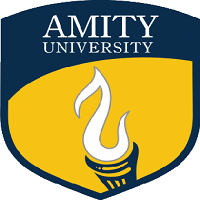Sanskriti University B.A Admissions 2025
Best innovation and research-driven university of Uttar Pradesh
BRS or Bachelor of Rural Studies is a three-year course at the undergraduate level. It prepares the graduates to work for the development of rural areas, make the people aware of issues affecting the rural economy, and work towards improving their situation. Rural studies involve community mobilisation and policy implementation. It was introduced considering the rural economy's contribution to the Indian economy.
Latest: Top B.R.S Colleges in India
Don't Miss: Courses after 12th Commerce, Arts and Science
Recommended: Best Career Options after 12th Arts, Science & Commerce
To be eligible for the Bachelor’s degree in Rural Studies course, students should have completed their 10+2 from a recognised institute in India. The admission procedure involves either entrance examinations or merit-based admissions. Some of the topics covered are statistics, cooperation, panchayat, animal husbandry, agriculture, and horticulture.
The full form of BRS is Bachelor of Rural Studies, it is an undergraduate degree programme of three years duration. To be eligible for the course, students should successfully clear their 10+2 from a recognised board in Inda.
| Particulars | Values |
|---|---|
Degree Name | BRS |
Full Form | Bachelor of Rural Studies |
Degree Type | Undergraduate |
Eligibility | 10+2 from a recognised board in India |
Fees Structure | |
Admission Procedure | Entrance exam/Merit-score |
Career Options | Agronomist, Social Worker, Rural Officer, Rural Development Banker |
Top Recruiters | IndusInd Bank, NABARD, ADM Agro Industries |
Average Salary | Rs. 4.5 LPA (Agronomist) |
The course fee structure of a BRS course is generally decided by the management authority of the institute. It generally does not include the security deposit, application fees and costs associated with accommodation. Candidates can check the official website of the institute to know the course fees.
More than 65 per cent of the Indian population is under the age of 35. This youth population is a rich resource in India, especially the rural Indian youth population, where 75 per cent population lives. Rural India constantly faces socio-economic and political challenges.
Due to these challenges, the growth of rural India is still suffering and millions are deprived of the rights to education, food, and health care. Bachelor of Rural Studies opens the vast opportunity for Indian youth to contribute to rural development.
The eligibility criteria for BRS (Bachelor of Rural Studies) depends on the provider. Before applying for the Bachelor of Rural Studies course, students should check the eligibility criteria either on the official website of the institute or on the programme brochure. Listed below are the eligibility guidelines for the BRS course.
Only those students who have met the eligibility requirements can apply for BRS admissions. It is generally on a first-come, first-served basis. Students can apply either through online mode by filling out the application form or by visiting the admissions office. Listed below are the admission details of the BRS degree programme.
BRS or Bachelor of Rural Studies is a highly practical course that requires students to have the necessary soft and technical skills. It will help them in their personal and professional growth. Listed below are the skills and attributes required for the BRS course.
As of now, there are no major entrance examinations for the Bachelor of Rural Studies course. Many universities conduct their university-specific examinations. Candidates can check the official website of the college to know the admission guidelines along with the required entrance examinations.
The cutoff for the Bachelor of Rural Studies (BRS) is influenced by various factors. Some of the factors are number of candidates, difficulty level of the examination and number of seats available. It is released annually after the declaration of the results.
The syllabus of BRS is spread over six semesters spread over three years. Some of the subjects are Soil Management, Introduction to Crop Production, Animal Husbandry, and Horticulture. Listed is the BRS syllabus of Shri Govind Guru University.
Soil Management | Introduction to Crop Production |
Concept Of Sustainable Agriculture In India | Introduction to Horticulture |
Introduction to Animal Husbandry | Domestic Animals & Cattle Breeds |
Community Development Programme | Introduction to Rural Extension-1 |
Social, Religious & Political History of India | Field Work |
English | Yoga, Ayurveda & Holistic Living |
As of now, there are no specialisations offered in the BRS degree programme. Candidates can check the official website of the college to find the specialisations offered.
After a Bachelor of Rural Studies (BRS) candidates can apply for various higher education degrees. Some of the degrees students can apply for are MRS (Master of Rural Studies), MBA, and MSW (Master of Social Work). Graduates have a high employability in the rural sector, particularly in the public sector.
Some of the popular job profiles candidates can opt for after graduation are listed below. Candidates should choose the job profile depending on their interests and future goals.
Social Worker- Social Workers are professionals who help vulnerable groups, communities or individuals They work for people suffering from poverty, discrimination, and or injustice.
Agronomists- Agronomists are professionals who are skilled in maintaining different types of crops. They find ways to maximise crop production from a given and how to grow crops effectively and profitably.
Rural Development Officer- Rural Development Officers are professionals who aim to maximise rural development. They are responsible for overseeing the development plans and their implementation in a particular area.
The salary after a BRS or Bachelor of Rural Studies depends on various factors. The public sector offers much higher pay than the private sector. The salary offered varies depending on the skills, qualifications, and experience of the candidate and the job profile opted for. Listed below are the salary of a BRS graduate.
| Job Profiles | Average Salary |
|---|---|
Social Worker | Rs. 3.2 LPA |
Rural Development Officer | Rs. 3 LPA |
Agronomist | Rs. 6.6 LPA |
Source: AmbitionBox and Glassdoor
BRS graduates can find employment in both private and public sectors. Some of the employment options available after BRS are listed below.
Private colleges are known for their exceptional placement facilities and state-of-the-art infrastructure. However, the fee charged by them is also higher than the government institutes. In the table below, we have provided the top private BRS colleges.
In India, only one government college offers a Bachelor of Rural Studies course. BM Shah Mahavidhyalaya, Zilia is a popular government institute. Candidates can check the official website of the same to find other relevant details.
BRS stands for Bachelor of Rural Studies. It is a three-year undergraduate-level course.
Candidates need to have passed class 12th from the recognized education society, board, or university.
The degree covers topics like the rural economy, statistics, cooperation, panchayat, animal husbandry, agriculture, horticulture, research work, political science, and entrepreneurship
India is the youngest nation in the world. More than 65 percent of the population is under the age of 35. This youth population is a rich resource of India, especially the rural Indian youth population, where our 75 percent population lives. Rural India constantly faces socio-economic and political challenges. Due to these challenges, the growth of rural India is still suffering and millions are deprived of the rights to education, food, and health care. Bachelor of Rural Studies opens the vast opportunity for Indian youth to contribute to rural development.
The BRS degree holders have good opportunities to work in rural areas, especially in the public sector. The central and state government has initiated various programmes for rural development, in the area of education, health care, cottage industries, animal husbandry, agriculture, horticulture, and entrepreneurship under “skill India''. Candidates have good opportunities to join these departments as per the respective state governments’ rules and regulations. They can also be an entrepreneur by establishing a small enterprise unit. One can also plan for higher studies after B.R.S. Master of Rural Studies (MRS), Master of Business Administration (MBA), Master of Social Welfare (MSW) can be pursued after BRS.
The B.R.S. degree holders have opportunities in the field of rural development. They can become field officers, documentation officers, programme officers, area executives, agronomists, research heads, marketing & sales managers, territory in-charge, business development managers, and district coordinators
Candidates need to be sensitive to the issues of rural development. They should have skills of organising and prioritizing the tasks, they should also be fluent in local languages and should be in constant communication with the villagers, where the project is getting implemented. He or she should have the ability to listen to the local villagers and give voice and space to their opinion in the project implementation process.
Many national and international NGOs are working in the field of rural development and in need of people at the field level, to monitor, implement, and run the various programmes. BRS degree holders have good opportunities to work at NGOs.Since the Government of India and International NGOs are funding the local NGOs and partnering with them in implementation, BRS degree holders have opportunities to initiate their own NGO in the field of education, health and entrepreneurship, and other areas that focus on making the villages self-reliant.
To implement the government and non-government projects, organisations are in need of the people who are well aware of the socio-economic background of the area and have zeal and passion for the task of rural sustainable development. BRS graduates are very suitable persons for the role of project coordinator in a selected area. Being a project coordinator, one is responsible for implementing the target-oriented tasks of the projects.
BRS graduates can take careers in rural marketing and can contribute to the rural economy. Candidates who are willing to take marketing jobs after BRS should have good communication skills. They also need to be fluent in the local language so that they can easily communicate with the workers and local villagers. They also need to be soft-spoken and pursuing.
Hello,
Generally the eligibility criteria of BRS is passed 10+2 from a recognized board securing 45% aggregate, the admission process may be merit based or done through entrance test, the course fee structure can range from Rs 10,000 to Rs 50,000 on an annual basis, explore more detailed information at https://www.careers360.com/courses/brs-bachelor-of-rural-studies
There are only seven private colleges in Gujarat offering bachelor of rural studies-
Visit our page at https://university.careers360.com/colleges/list-of-brs-degree-colleges-in-gujarat to know more details regarding this.
Hi aspirant,
The admission in BRS Bachelor of Rural Studies is offered by BRS college Dumiyani on the basis of merit.
The admission in BRS is based on 10 + 2 higher secondary education from a recognized or affiliated university.
There are around 18 faculty members in total. The admission procedure is notified by the college on their official website.
Hope that helps.
Hello,
The Mop up round for NEET West Bengal state counselling has already concluded. The date to join in BDS courses has been extended from January 15, 2021- January 31, 2021. The last date to join in MBBS course was January 15, 2021. There aren't any further rounds conducted for allotment of seats. So registration window for NEET West Bengal state counselling will not be opened again.
Hello
With your marks your AIR must be around 25000.
Assuming that you are from general category, with your rank your chances of getting BDS in AIQ counselling are low however you may get a seat in State counselling but the chances are slim if you are going for DU Counselling (that is if you live in Delhi). To know your chances of securing a seat in NEET 2020 you can use https://medicine.careers360.com/neet-college-predictor
Hey!
Your query is not clearly defined. So providing answer on considering your query on BMS course.
BMS course does not have magnefucent scope in India and the salary after under graduation fluctuates between 3-5 lakhs per annum. And the popular job profiles are
Thank you

Ranked amongst the top 3% of universities globally (QS Rankings)

Accorded Institution of Eminence by Govt of India, NAAC A++ Accredited, Ranked #4 by NIRF 2024

Ranked #46 amongst Universities in India by NIRF | 1900+ Students Placed | 94% Placement | 633+ Recruiters | Last Date to Apply: 15th May

Ranked #1 Among all Private Indian Universities in QS Asia Rankings 2025 | Scholarships worth 210 CR
India's Largest University | NAAC A++ | 100% Placements Record | Highest CTC 2.5 Cr PA | 145 + Programmes in 55+ Disciplines | End Date : 15th Apr’25
100+ Industry collaborations | 10+ Years of legacy